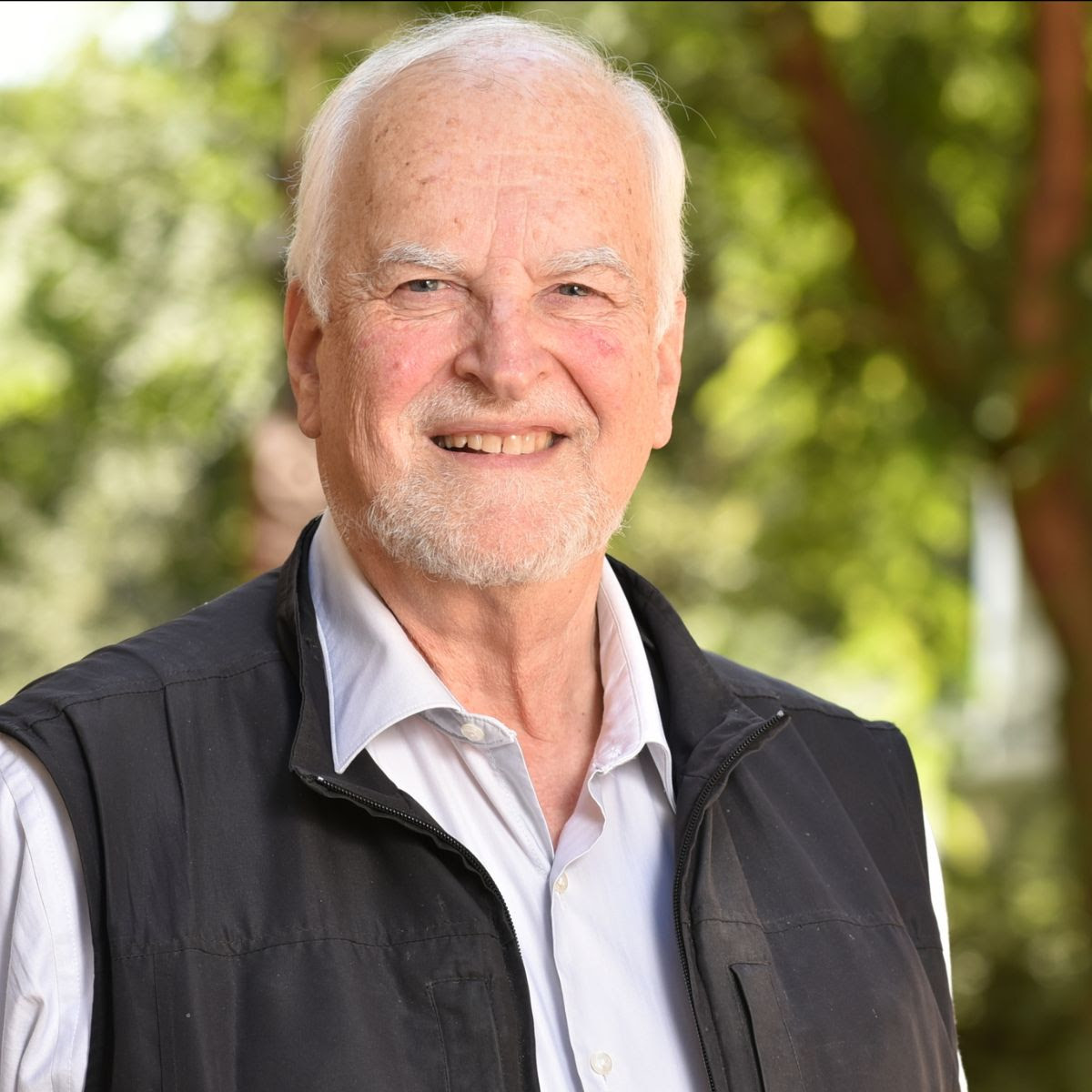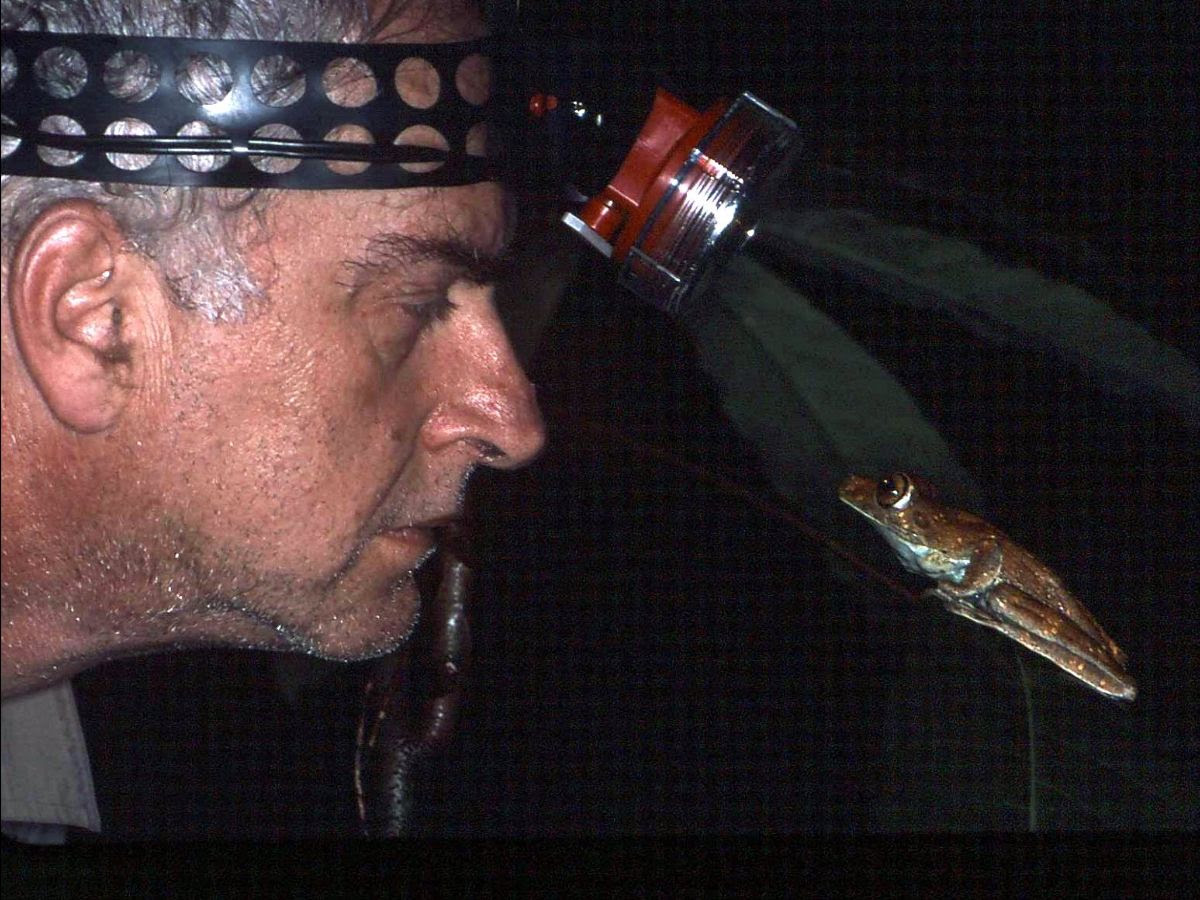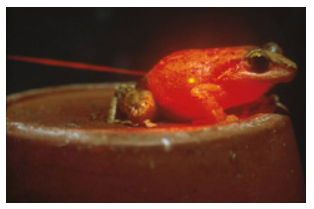Please join us on Tuesday, November 17th to hear Peter M. Narins, Ph.D., Distinguished Research Professor (Departments of Integrative Biology & Physiology, and Ecology & Evolutionary Biology Center for Tropical Research, UCLA) present on The Puerto Rican Coqui: An exemplary model for acoustic communication in noise.
The November 17th meeting will be hosted by Tom Kaytt (Bruel & Kjaer) through Microsoft Teams. Please note that you do not have to have a Teams account to attend. Just click the link!
– Tom & Alana
Date: Tuesday, November 17th, 2020
Time: 7:30-8:30 PM PST Meeting; 8:30-9:00 PM PST Q&A
Speaker: Dr. Peter M. Narins, Departments of Integrative Biology & Physiology,
and Ecology & Evolutionary Biology, UCLA
Topic: The Puerto Rican Coqui: An exemplary model for acoustic communication in noise.
Meeting Link: Click Here
Phone Dial-in: 1-323-8139622
Conference ID: 969 828 45#
In this talk, I shall discuss the responses of the Puerto Rican Coqui to playbacks of acoustic stimuli and what we can learn from them. For example, presenting high-level, periodic tones to vocalizing males in their natural habitat results in a clear shift in their calling pattern in that they avoid acoustic overlap with the playback stimulus. In addition, in response to aperiodic interfering tones, males of this species initiate their calls in the gaps between the interfering tones more often than would be expected by chance alone. The Coqui also have a remarkable ability to shift their call timing in response to small intensity shifts in the background noise. Moreover, these animals exhibit several novel adaptations to reduce the potentially deleterious effects of their high-intensity calls on their own auditory system. Clearly this species represents a remarkable model for understanding acoustic communication in high levels of background noise and deserves widespread conservation efforts (Support: UCLA Acad. Sen. grants).

At the cornerstone of Peter’s major scientific contributions is the application of principles from engineering to the study of hearing. Using anuran amphibians (frogs and toads) as his primary experimental model, he pioneered a research strategy that integrated an analysis of the mechanics and physiology of hearing in the well-controlled laboratory setting with elegantly-designed field experiments in the acoustically-messy and complex real world environments in which animals actually have to hear, listen, and act. By this approach, he showed definitively what was once considered to be a “simple” ear is actually quite complex and reveals many surprises.

Dr. Peter M. Narins received his B.S. and Master’s in Electrical Engineering from Cornell University. After volunteering for three years with the Peace Corps in Chile, he returned to Cornell to earn his Ph.D. in Neurobiology and Behavior under the supervision of Robert R. Capranica. He then moved to the University of Keele for a postdoctoral fellowship to learn mammalian auditory physiology with Edward F. Evans, and later returned to the United States to join the faculty at UCLA, where he rapidly rose through the ranks to become Distinguished Research Professor of Integrative Biology & Physiology and of Ecology & Evolutionary Biology.

Peter’s numerous honors and awards include election to the rank of Fellow of the John Simon Guggenheim Foundation and four scientific societies — the Acoustical Society of America, the Animal Behavior Society, the American Association for the Advancement of Science, and the International Society for Neuroethology. He has been named a Grass Fellow at Woods Hole, and has also been the recipient of a Senior Scientist Award from the Alexander von Humboldt Foundation and an Award from the Fulbright Scholar Program. In 2019, Dr. Narins received the Association for Research in Otolaryngology Award of Merit.
Los Angeles Chapter Corporate Members
Acousthetics
Baswa Acoustic
Brüel & Kjær
Channel Islands Acoustics
Ecore International
McKay Conant Hoover, Inc.
Menlo Scientific Acoustics, Inc.
Veneklasen Associates

Recent Comments